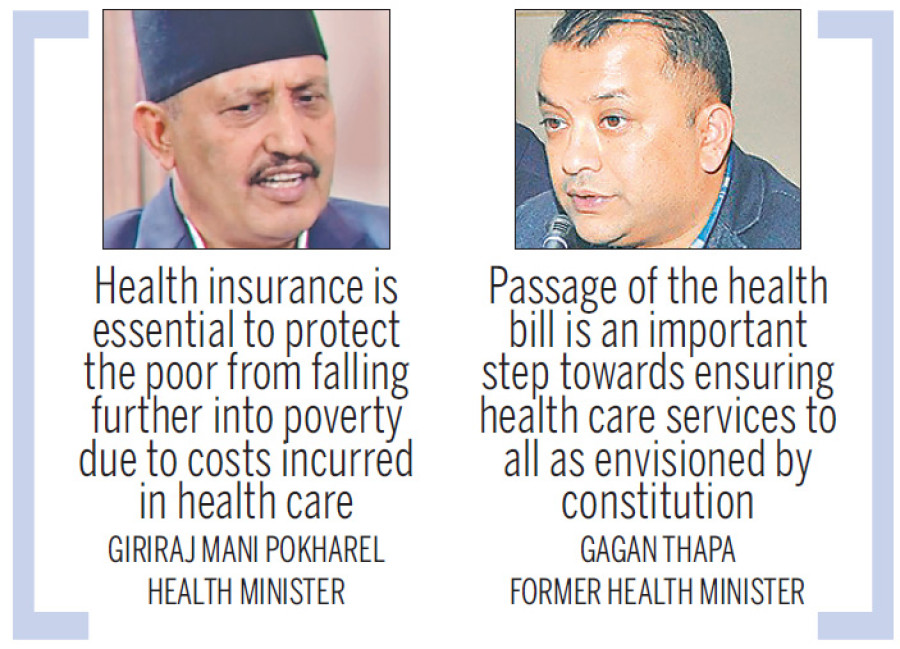National
House nod to landmark bill to ensure universal health care
Parliament on Tuesday endorsed the Health Insurance Bill, which envisions universal health coverage, in a landmark move towards ensuring health care for all.
Binod Ghimire
Parliament on Tuesday endorsed the Health Insurance Bill, which envisions universal health coverage, in a landmark move towards ensuring health care for all.
Mandatory health insurance for all Nepali nationals is a major provision of the bill which in Clause 21 states that it will consider each household as a unit and all family members must enrol themselves in the programme.
The new health law will come into force once President Bidya Devi Bhandari authenticates it. The whole idea of universal health coverage, also called universal health care, is ensuring that all citizens have access to needed promotive, preventive, curative and rehabilitative health services, while also ensuring that people do not suffer financial hardship while paying for the services.
While taking part in parliamentary deliberations on Tuesday, former health minister and Nepali Congress leader Gagan Thapa described the passage of the Health Insurance Bill as a historic move. He, however, was quick to add that the insurance programme would be effective only if the government succeeded in monitoring private hospitals and controlling the price of medicines.
“It is an important step towards ensuring health care services to all the citizens as envisioned by the constitution,” Thapa told the Post.
The Cabinet had approved the bill in April when Thapa was health minister and forwarded it to Parliament.
Tabling the bill for the endorsement in the House, Minister for Health Giriraj Mani Pokharel said that health insurance is essential to protect the poor from
falling further into poverty due to costs incurred in health care. “The insurance premium for the families who cannot afford to pay will be borne by the government,” he told the House.
NC’s Thapa had long been lobbying for health insurance coverage, as the health security programme launched by the government in a few districts was guided by regulations and a strong legal basis was required for its nationwide expansion.
The new law now has set the stage for universal health coverage.
Under the current health security programme currently run by the government in some districts, a household of five has to pay an annual premium of Rs 2,500 to get services worth up to Rs 50,000. For each additional member, Rs 425 has to be paid for health services worth up to Rs 10,000.
The new health law stipulates that premium will be levied depending upon the income of each family. It also has a provision of setting up Health Service Board to oversee and coordinate health insurance. The board will have a chairman appointed by the government and representatives from the concerned ministry and insurance companies.




 9.51°C Kathmandu
9.51°C Kathmandu














